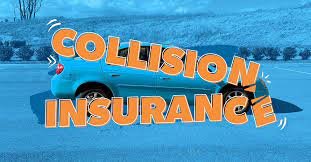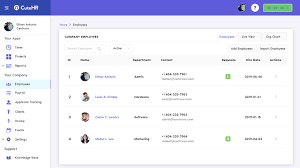Definition Collision Insurance: Everything You Need to Know in 2025

When it comes to protecting your vehicle, understanding the definition collision insurance is more important than ever. In 2025, as insurance options evolve with driving habits and vehicle technology, knowing what your policy truly covers can save you from unexpected costs. This guide breaks down collision insurance in simple terms, outlines its benefits, and helps you decide if it’s the right choice for your current situation.
What Is the Definition of Collision Insurance?
The definition collision insurance refers to a type of car insurance coverage that pays for damage to your vehicle after a collision—regardless of who is at fault. Unlike liability insurance, which covers damage to another person’s vehicle or property, collision insurance is strictly for your own car. It becomes particularly valuable if you hit another car, a stationary object like a tree or pole, or if your vehicle rolls over.
Although it’s not required by state laws, lenders or leasing companies typically mandate this coverage until the loan is paid off. Because of this, understanding the true scope of definition collision insurance can help you make better financial and legal decisions.
What Does Collision Insurance Cover?
Now that you understand the basic definition collision insurance, it’s crucial to know what this coverage actually includes. Here are some typical scenarios:
-
Crashing into another vehicle
-
Hitting a stationary object (fence, wall, pole, etc.)
-
Rolling your vehicle over
-
Damage from potholes or road debris
Collision insurance will cover the cost to repair or replace your vehicle, minus your deductible. However, it does not cover injuries, stolen vehicles, or damage caused by natural disasters—that’s where other insurance types like comprehensive coverage come in.
Why Is Collision Insurance Important in 2025?
In today’s fast-paced world, driving has become more unpredictable. With more electric vehicles, self-driving features, and distracted drivers on the road, the risk of accidents has increased. That’s why knowing the definition collision insurance is more relevant in 2025 than ever before.
Furthermore, modern vehicles are equipped with expensive technology that can make repairs more costly. For instance, fixing a bumper might now involve sensor and camera replacements, making out-of-pocket expenses skyrocket without proper coverage.
Collision Insurance vs. Comprehensive Insurance
It’s easy to confuse collision insurance with comprehensive insurance, but they are distinctly different. While the definition collision insurance covers you in the event of a crash, comprehensive insurance protects you from non-collision-related events like:
-
Theft
-
Vandalism
-
Fire
-
Weather-related damage (hail, flood, etc.)
-
Animal collisions
To ensure total protection for your vehicle, many drivers choose to carry both types of coverage. However, whether you need one or both depends on your car’s value and your financial tolerance for risk.
When Should You Drop Collision Insurance?
There comes a point when it might no longer make financial sense to carry collision coverage. Understanding the definition collision insurance helps you recognize when to keep it and when to consider dropping it.
Ask yourself the following questions:
-
What is the current value of my car?
If the value is significantly low, the payout from a collision claim might not justify the cost of maintaining the insurance. -
Can I afford to replace or repair my vehicle out of pocket?
If you’re financially comfortable handling the cost, you may opt to drop collision. -
Is my car paid off or still financed?
If you’re still paying for the car, the lender will likely require you to keep it.
By evaluating these questions, you’ll know whether maintaining this type of coverage is a smart decision.
How Much Does Collision Insurance Cost?
The cost of collision insurance varies based on several factors:
-
Your driving history
-
The make, model, and age of your vehicle
-
Your deductible amount
-
Your geographic location
On average, in the U.S., drivers pay around $300 to $500 per year for this coverage. While it may seem like an added expense, understanding the definition collision insurance and how it fits into your overall protection plan could save you thousands in the event of an accident.
Tips to Save on Collision Insurance in 2025
As premiums rise in 2025, here are some strategies to reduce the cost while still staying protected:
-
Increase your deductible: A higher deductible usually lowers your premium.
-
Bundle your policies: Combine auto with home or renters insurance.
-
Ask for discounts: Look for safe driver, multi-vehicle, or military discounts.
-
Review your policy yearly: Your insurance needs can change over time.
By applying these smart strategies, you can maintain collision insurance affordably and confidently.
Should You Get Collision Insurance for an Older Vehicle?
This is a common concern. For older cars, particularly those worth less than $2,000, the cost of collision coverage might outweigh the benefit. Still, the definition collision insurance remains the same: it pays for repairs to your own car after an accident.
If your car is older but still valuable to you—whether due to reliability, upgrades, or sentimental value—it might still be worth keeping. Otherwise, consider switching to liability-only insurance if the math doesn’t work in your favor.
Final Thoughts
In summary, understanding the definition collision insurance helps you make informed choices about your auto protection plan. Whether you drive a brand-new electric SUV or a 10-year-old sedan, having the right coverage can mean the difference between financial peace of mind and a costly mistake.
By knowing what this type of insurance covers, how it differs from other forms, and when to consider dropping it, you position yourself as a smarter, more prepared vehicle owner.




